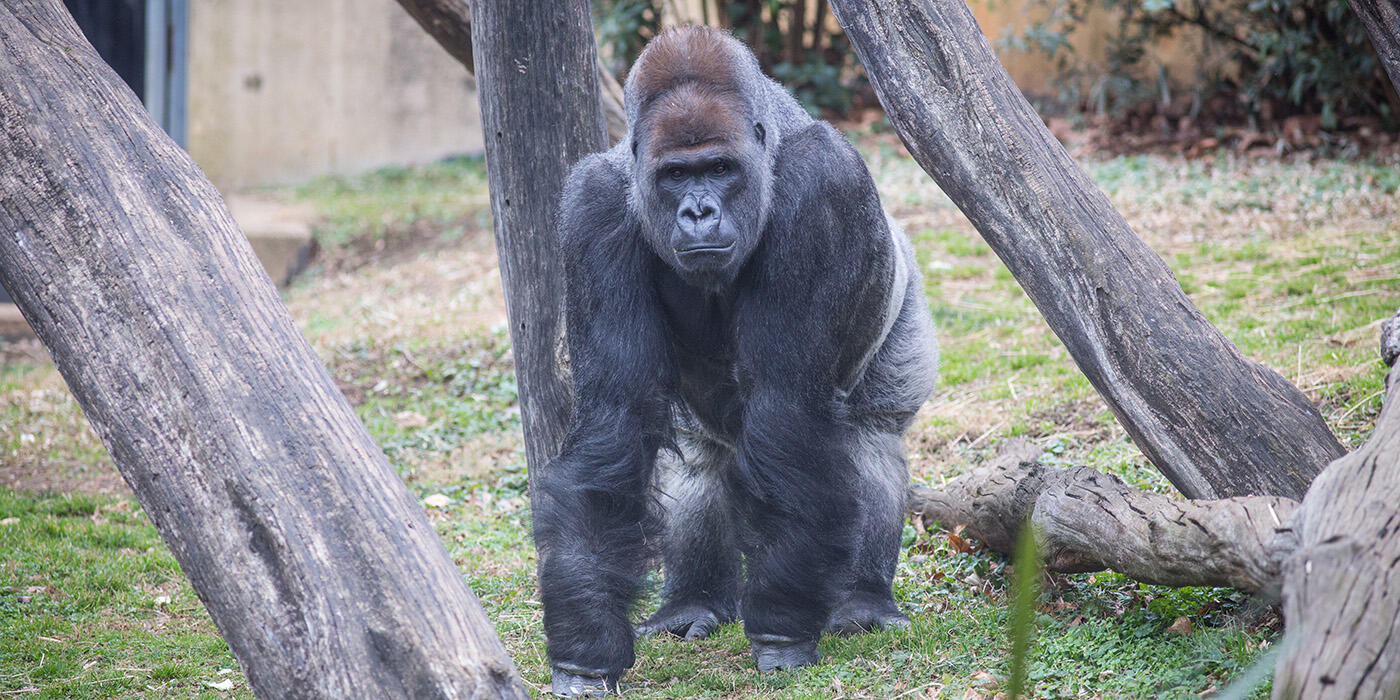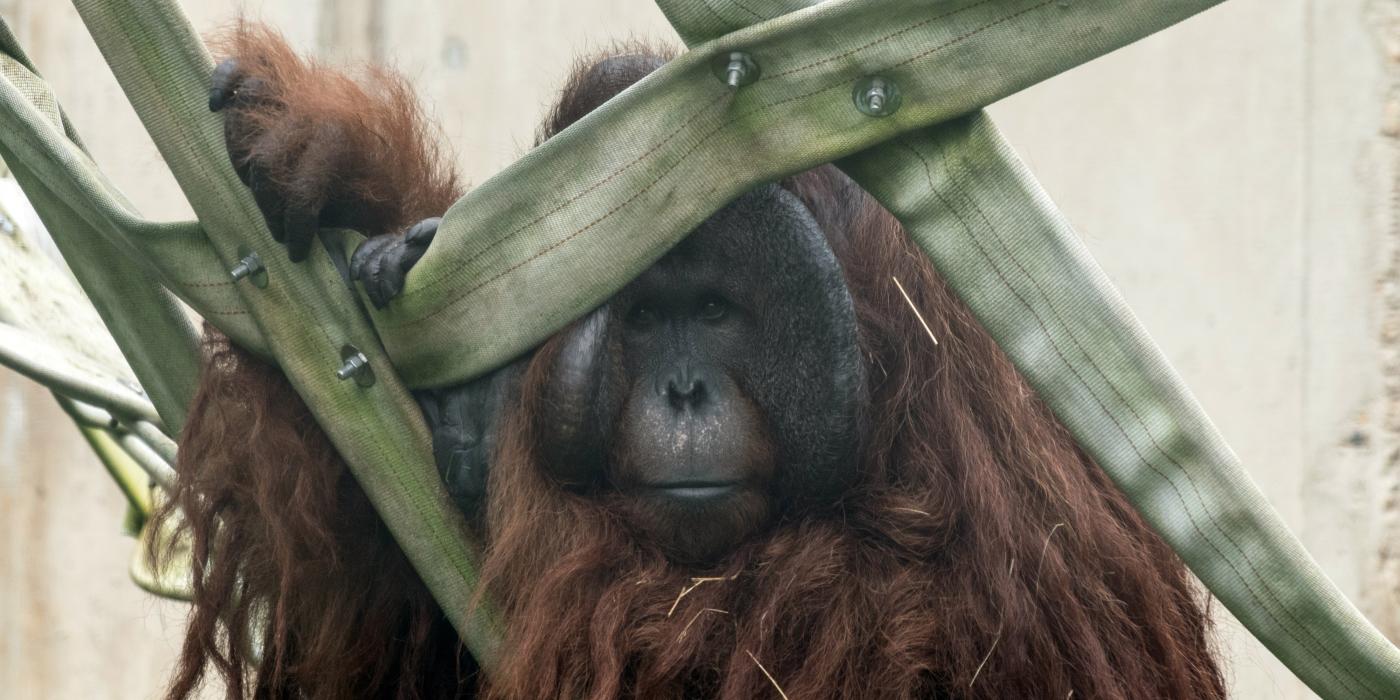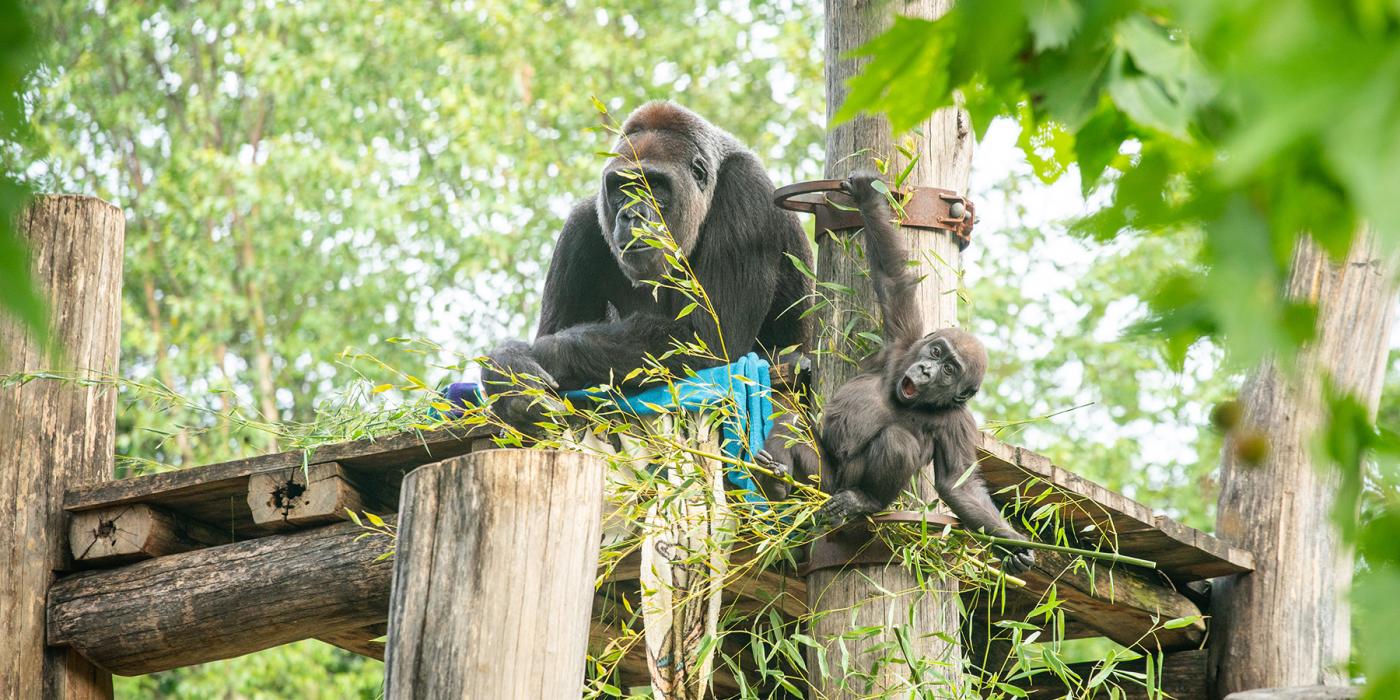#GorillaStory: Wrestling with Moke
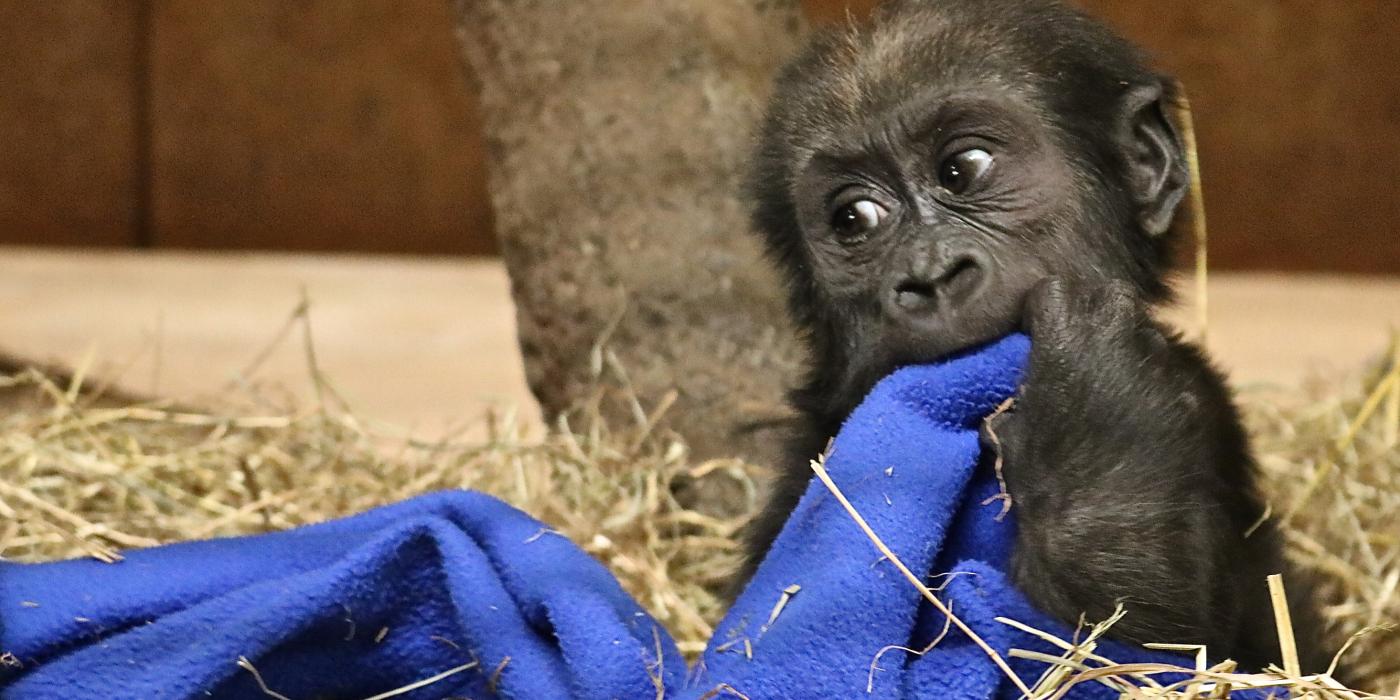
This update was written by primate keeper Melba Brown.
Autumn is off to an exciting start for our western lowland gorilla infant, Moke. Not only did he celebrate turning 6 months old on Oct. 15, he also received his first pumpkin to ring in Halloween! His encounter with this particular pumpkin was short lived. Within seconds, his mother, Calaya, swooped in and absconded with the treat for herself. Luckily, the primate team prepared a few extra slices, so Moke was able to take a taste and seemed to enjoy it. He continues to grow steadily, and at Moke’s last weigh-in he was 11.8 pounds.
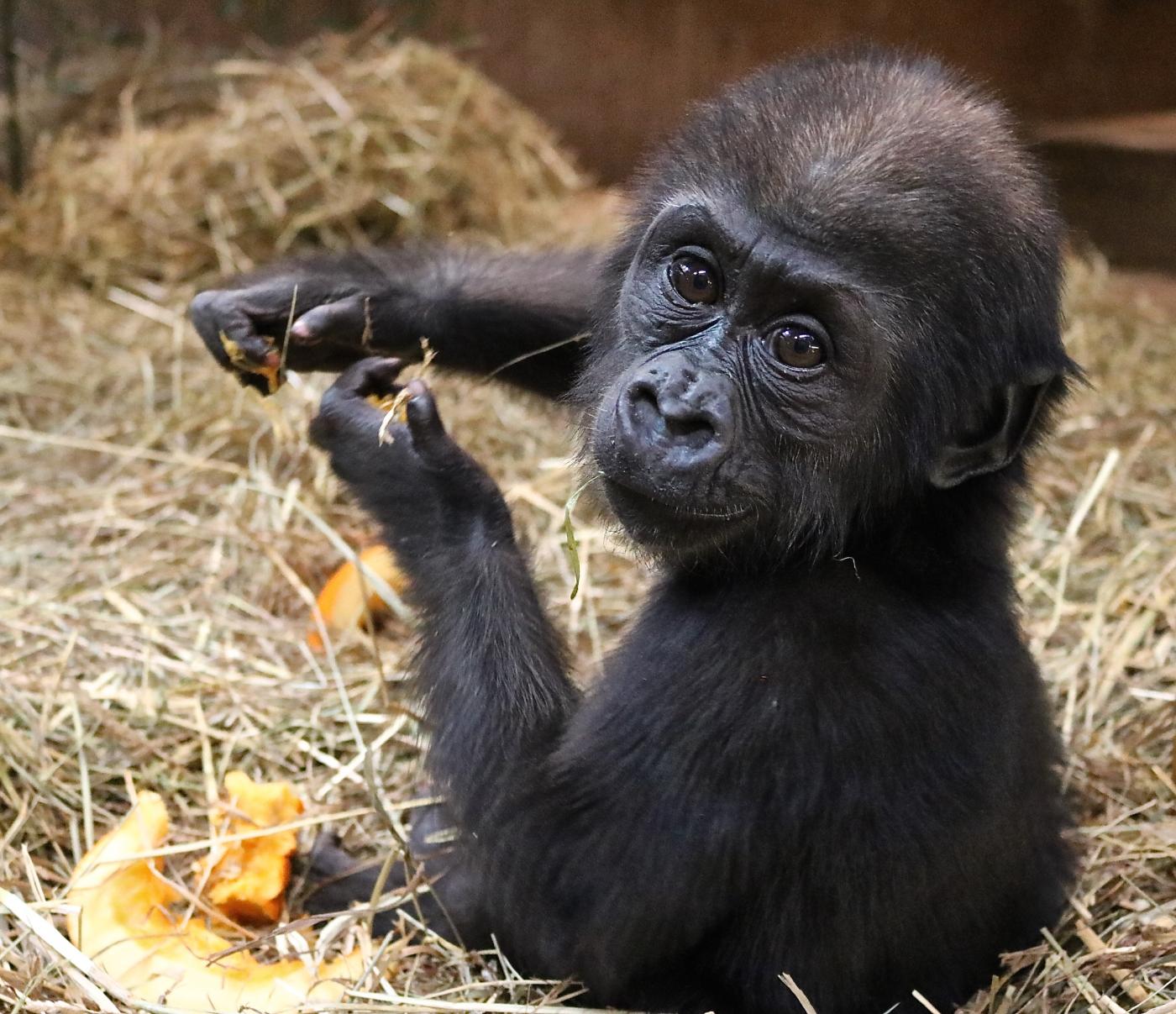
Even from a younger age, it became clear to keepers that Moke’s emerging personality showed traits that were more reminiscent of his mom than his dad, Baraka. Recently, I was on the receiving end of his attitude. I was giving him some grape halves to eat. When I stopped feeding him, he gave me a stern look squarely in my eyes and grunted in a base tone a few times. It was pretty clear from his vocalizations and behavior that he was not happy that I did not keep the treats coming! At first, I was a bit taken aback by his posturing. On second thought, though, it did not surprise me since Calaya can be one feisty gorilla.
Related Species:

